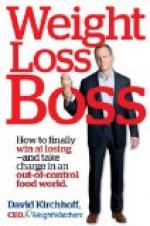This is a sample of the kind of discovery that I was perpetually making. Two out of three times when I thought I had run across a characteristically American expression of efficiency, I was told that it had been copied from the British. I learnt more about my own army’s business efficiency in studying it secondhand with the Americans, than I had ever guessed existed in all the time that I had been an inhabitant of the British Front. It is characteristic of us as a people that we like to pretend that we muddle our way into success. We advertise our mistakes and camouflage our virtues. We are almost ashamed of gaining credit for anything that we have done well. There is a fine dishonesty about this self-belittlement; but it is not always wise. During these first few months of their being at war the Americans have discovered England in almost as novel a sense as Columbus did America. It was a joy to be with them and to watch their surprise. The odd thing was that they had had to go to France to find us out. Here they were, the picked business men of the world’s greatest industrial nation, frankly and admiringly hats off to British “muddle-headed” methods. Not only were they hats off to the methods, many of which they were copying, but they were also hats off to the generous helpfulness of our Government and Military authorities in the matter of advice, co-operation and supplies. From the private in the ranks, who had been trained by British N.C.O.’s and Officers, to the Generals at the head of departments, there was only one feeling expressed for Great Britain—that of a new sincerity of friendship and admiration. “John Bull and his brother Jonathan” had become more than an empty phrase; it expressed a true and living relation.
A similar spirit of appreciation had grown up towards the French—not the emotional, histrionic, Lafayette appreciation with which the American troops sailed from America, but an appreciation based on sympathy and a knowledge of deeds and character. I think this spirit was best illustrated at Christmas when all over France, wherever American troops were billeted, the rank and file put their hands deep into their pockets to give the refugee children of their district the first real Christmas they had had since their country was invaded. Officers were selected to go to Paris to do the purchasing of the presents, and I know of at least one case in which the men’s gift was so generous that there was enough money left over to provide for the children throughout the coming year.
In France one hears none of that patronising criticism which used to exist in America with regard to the older nations—none of those arrogant assertions that “because we are younger we can do things better.” The bias of the American in France is all the other way; he is near enough to the Judgment Day, which he is shortly to experience, to be reverent in the presence of those who have stood its test. He is in France to learn as well as to contribute.




